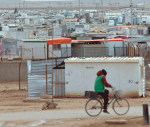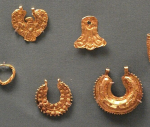You are here
Saudi Arabia to test camels for MERS — paper
By Reuters - Jun 05,2014 - Last updated at Jun 05,2014
RIYADH — Saudi Arabia will test camels in the kingdom for Middle East Respiratory Syndrome (MERS), its agriculture minister was quoted as saying, a day after a Saudi study reinforced a long-suspected link between the animals and human cases of the deadly virus.
There have been 691 confirmed cases of MERS, including 284 deaths, in Saudi Arabia since it was identified two years ago, and many scientists have said for months that camels are the most likely source of transmission from animals to humans.
A case study published on Wednesday of a Saudi man who died from the disease last year appeared to back that up, scientists said.
Agriculture Minister Fahad Balghunaim said a programme to register and number livestock including camels had begun last year and would be accelerated, the Arab News English-language daily reported.
He said all camel livestock would be tested for MERS and the Saudi Wildlife Authority would also take samples from wild camels roaming freely in the desert to establish the level of infection from MERS in the wider animal population.
Imported camels would also be tested for MERS and quarantined, Arab News reported him as saying. A spokesman for the agriculture ministry did not immediately respond to requests for comment on the issue.
Although the link between camels and MERS was first identified last year, the agriculture ministry had taken no action by as late as last month.
At Riyadh’s main camel market, one of the largest in the kingdom, traders, breeders, handlers and even veterinary doctors said they were unaware of any connection between their animals and MERS, and said they had not been contacted by officials.
A Reuters Special Report last month cited Western scientists saying Saudi Arabia appeared reluctant to collaborate with some specialist laboratories around the world offering to help investigate the possible source of MERS and explore how it spreads.
The Saudi acting health minister responded to that article saying the kingdom was working with international health organisations and would continue to do so.
The MERS virus, which can cause fever, coughing, shortness of breath and pneumonia, is also thought to be spreading from human to human.
Related Articles
Saudi Arabia said on Thursday it had identified 32 new cases of Middle East Respiratory Syndrome (MERS), pushing the total number of infections in the country so far to 463.
A Saudi man has died of MERS in the western city of Jeddah, where authorities have sought to calm fears over the spreading respiratory illness, the health ministry said Wednesday.
Saudi Arabia is seeing "sporadic" cases of the Middle East Respiratory Syndrome coronavirus (MERS-CoV), which has killed 324 people in the country, the health ministry said Thursday.















